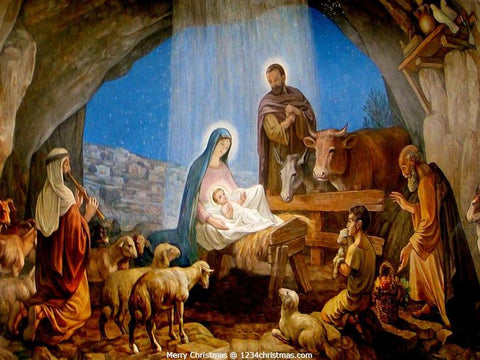The Christmas season, often associated with the joyous celebration of Jesus Christ's birth, holds a different connotation in the Catholic faith. Contrary to the common notion of December 25th marking the culmination of Christmas, for Catholics, this date signifies the commencement of an extended liturgical period filled with significance and reverence.
The Catholic Liturgical Calendar and Christmas
In the Catholic tradition, the Christmas season unfolds from December 25th and extends to the Feast of the Baptism of the Lord, typically celebrated on the Sunday following January 6th. This period is punctuated by several important feast days, each carrying distinct meanings and values.
Feast of the Nativity: December 25th is when the birth of Jesus Christ is celebrated, marking the joyful start of the Christmas season.
Feast of the Holy Family: Celebrated on the Sunday following Christmas, this day venerates Jesus, Mary, and Joseph, highlighting the sanctity of family in Christian life.
Solemnity of Mary, Mother of God: January 1st is dedicated to honoring Mary and her role in the salvation narrative.
Epiphany: Falling on January 6th, this day, also known as Three Kings’ Day, celebrates the Magi's visit to Jesus, symbolizing Christ's revelation to all humanity.
Feast of the Baptism of the Lord: This feast concludes the Christmas season and commemorates Jesus's baptism, marking the start of his public ministry.
Relevance of the Christmas Season
The Christmas season, in its entirety, is a time of profound spiritual reflection. It encourages the faithful to contemplate the Incarnation — the profound mystery of God taking human form in Jesus. This period is not merely a historical commemoration but a celebration of God's enduring presence in the world and individual lives.
Celebrating the Christmas Season
Celebrating this extended season can take various forms, both in church and within the home:
Liturgical Services: Attending Mass on Christmas Day and subsequent feast days is central to the celebration.
Nativity Scenes and Decorations: Keeping up Christmas decorations and nativity scenes until the season's end helps maintain the festive spirit.
Reflection and Prayer: This season is an opportune time for personal and communal prayer, reflecting on the life-changing implications of Jesus's birth.
Charitable Acts: The spirit of Christmas is furthered through acts of kindness and charity, extending the season's ethos of generosity.
Purpose of the Christmas Season
The Christmas season serves multiple purposes:
Celebration: It's a period for rejoicing in the birth of Christ with heartfelt gratitude.
Reflection: The season provides a chance to ponder the profound mystery of the Incarnation and its impact on humankind.
Preparation: It readies the faithful for the upcoming year, reinforcing the perpetual presence of Christ in their lives.
Sharing: It's an ideal time for sharing love, joy, and peace, truly embodying the essence of Christmas in daily interactions.
Conclusion
The Christmas season in the Catholic Church transcends beyond a single day of festivity. It embodies a prolonged period of joy, contemplation, and spiritual enrichment. By embracing and participating in the entirety of this season, Catholics deepen their faith and continue to savor the joy of Christmas well past December 25th.

